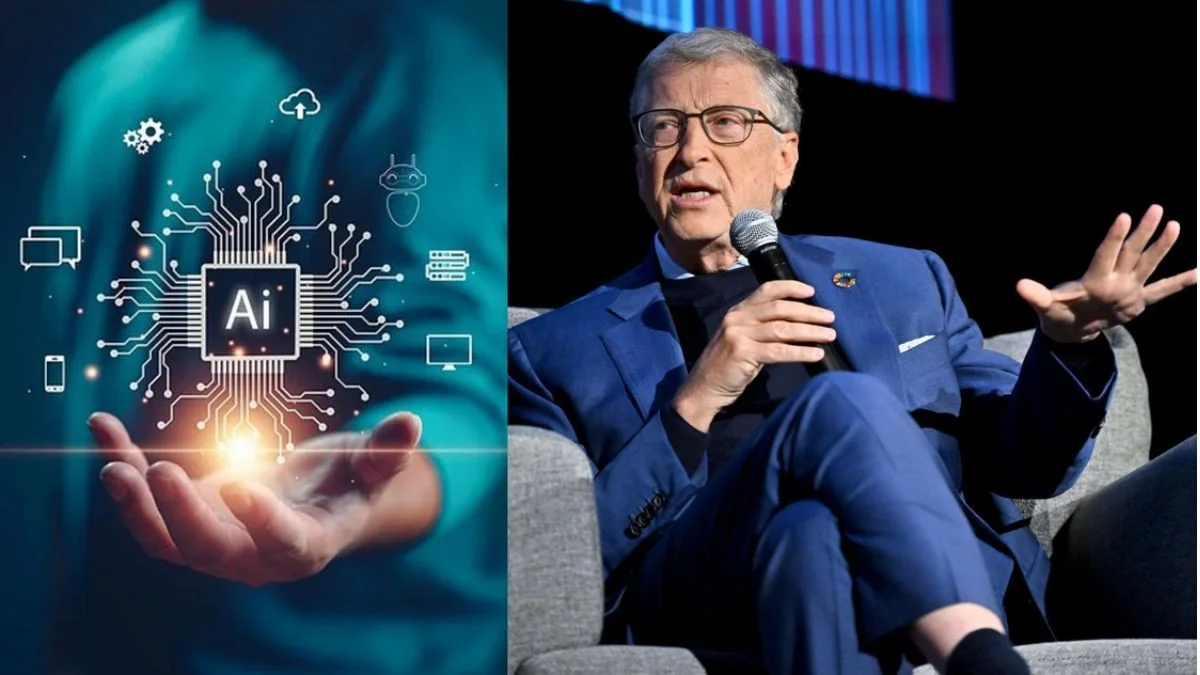16/04/2025
16/04/2025

NEW YORK, April 16: Bill Gates believes that artificial intelligence could soon help eliminate the long-standing shortages of doctors and teachers across the globe.
“AI will come in and provide medical IQ, and there won’t be a shortage,” Gates said during an episode of the People by WTF podcast, published Friday.
Gates, who has long focused on public health through his philanthropic work, noted that countries such as India and those across Africa continue to face significant shortages of medical professionals. The United States is also grappling with this issue. A 2023 report by the Association of American Medical Colleges projected that the U.S. could face a shortfall of up to 86,000 physicians — including both specialists and primary care doctors — by 2036.
Michael Dill, director of workforce studies at the organization, told Business Insider last year that the country would need hundreds of thousands of doctors to provide equitable care for all, including underserved communities, the uninsured, and rural populations.
The shortage is especially concerning in geriatric care, where the number of specialists continues to decline even as the population ages. Medical professionals warned Business Insider in March that this growing demand from older patients could trigger a crisis in the quality of care.
To help alleviate burnout in the industry, healthcare-focused AI startups have raised billions of dollars by positioning themselves as a potential solution. Startups such as Suki, Zephyr AI, and Tennr aim to reduce workloads by automating repetitive tasks like billing and note-taking, while also improving diagnostic accuracy and identifying candidates for new treatments, according to a Business Insider report from December.
Consulting firm McKinsey estimates that generative AI could increase productivity in healthcare and pharmaceuticals by as much as $370 billion.
Gates noted that the same transformation is underway in education. According to federal data released in 2023, 86% of K–12 U.S. public schools reported difficulty in hiring teachers for the 2023–24 academic year, with about 45% of schools saying they were understaffed.
In the U.K., one London high school is piloting the use of AI to supplement teaching. David Game College implemented a program in which 20 students used tools like ChatGPT to help prepare for exams in core subjects including English, math, biology, and computer science, Business Insider reported.
Despite growing concerns about students using AI to cheat, many educators remain optimistic. Teachers told BI they believe generative AI has the potential to save time and improve learning outcomes, especially as teacher shortages persist.
But Gates wasn’t just referring to doctors and teachers. He also believes AI will soon impact workers in physically demanding jobs — including factory workers, construction crews, and hotel staff.
“The hands have to be awfully good to do those things. We’ll achieve that,” he said.
Tech giants like Nvidia are investing heavily in humanoid robots capable of performing manual tasks, from picking items in warehouses to scrubbing floors. These robots aim to reduce labor costs and boost overall efficiency.
Gates suggested that society may be headed toward a future where work is drastically reduced or redefined altogether.
“You can retire early, you can work shorter workweeks,” he said. “It’s going to require almost a philosophical rethink about, ‘Okay, how should time be spent?’”
He admitted that this shift is difficult to fully grasp, even for him. “It’s hard for those of us — in my case, spending almost 70 years in a world of shortage — even to adjust my mind,” Gates said.
In 1930, economist John Maynard Keynes famously predicted that advancements in technology could reduce the workweek to just 15 hours. Yet nearly a century later, most people still work around 40 hours a week.
“I don’t have to work,” Gates added. “I choose to work. Because? Because it’s fun.”


